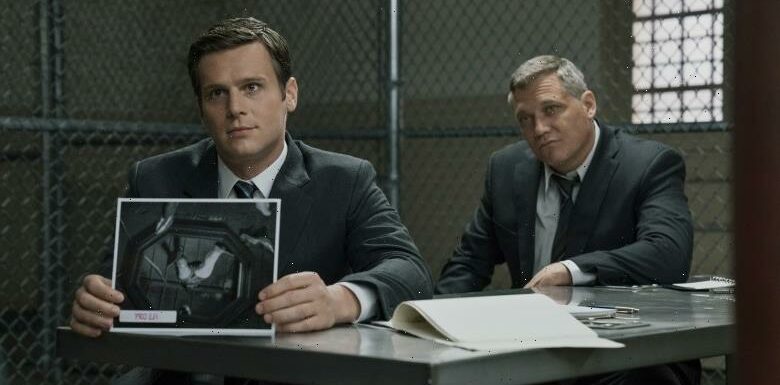
David Fincher has checked the pulse of “Mindhunter” and confirms its dead, gone, and buried.
Fincher, who executive produced the series and helmed seven episodes, confirmed that the serial killer-centric show was ultimately too costly for Netflix.
“I’m very proud of the first two seasons, but it’s a particularly expensive series and, in the eyes of Netflix, we haven’t attracted a large enough audience to justify such an investment,” Fincher told Le Journal du Dimanche. “I don’t blame them, they took risks to launch the series.”
“Mindhunter” premiered in 2017 with Jonathan Groff and Holt McCallany playing two FBI agents who set up a unit to begin the practice of criminal profiling in the 1970s. The series was based on the 1995 book “Mindhunter: Inside the FBI’s Elite Serial Crime Unit,” written by John E. Douglas and Mark Olshaker.
While Season 2 debuted in August 2019, the series seemed to have an informal cancellation on the streamer. Stars Groff, McCallany, and Anna Torv were released from their Netflix contracts in January 2020 after the series was put on indefinite hold.
Fincher later explained that a mix of high budgets and low viewership made “Mindhunter” “a lot” for him, citing that he spent six to seven months in Pittsburgh to work on the series for three years.
“We had done the first season of ‘Mindhunter’ without a showrunner, with me pinch-hitting on a week-by-week basis,” Fincher said to Vulture in 2020. “We started getting scripts for the second season, and I ended up looking at what was written and deciding I didn’t like any of it. So we tossed it and started over.”
The Oscar nominee continued, “And on some level, you have to be realistic about dollars have to equal eyeballs.”
However, a plotline for a possible third season was in the works. Season 2 director Andrew Dominik told Collider that had “Mindhunter” continued for a third installment, the show would have taken place in Los Angeles.
“One of them was going to be hooking up with Jonathan Demme and the other one was going to be hooking up with Michael Mann,” Dominik said. “And it was all going to be about profiling making it into the sort of zeitgeist, the public consciousness. It would’ve been… that was the season everyone was really waiting for to do, with when they sort of get out of the basement and start.”
Source: Read Full Article